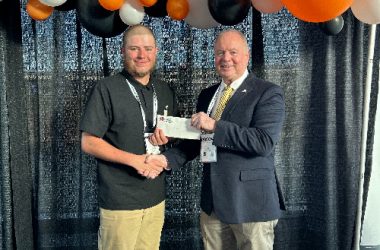West Virginia Press Association
Sen. Unger said he will push the legislation “as an urgent matter to protect our water resources. This situation could have been far worse if the chemical had been more toxic or had no odor.”
He presented his proposed legislation to Commission on State Water Resources at that agency’s meeting Jan. 15. Sen. Unger also said he plans to speak with members of the House of Delegates to get their support for the legislation.
His actions to present this legislation came after legislators experienced an unusual opening few days at the 60-day session that officially began Jan. 8 because of the chemical spill that shut down safe public drinking water in Charleston and surrounding counties for several days.
“This has been a wake-up call,” Sen. Unger said. “If it had been more toxic, it could have been more devastating. We lived through this. Now it’s up to us to learn from it and make the changes so it never happens again.”
Some 7,500 gallons of a chemical leaked through a storage container on Jan. 9 — the second day of the legislative session — and contaminated the water of an estimated 300,000 West Virginians for several days.
Unger said he wanted to expedite the legislation in the Senate so it could be sent to the House of Delegates on Jan. 17.
Meanwhile, Commissioner of Agriculture Walt Helmick told members of the Senate Finance Committee during his agency’s budget hearing there last week that he would like to see this state’s farmers double food production to $1 billion in the next few years.
“It not only would increase employment but also the tax base of this state,” said Helmick, a former chairman of that Senate committee.
Helmick and other officials in the state Department of Agriculture traveled to North Carolina to explore the farm industry in that state. They were particularly impressed with the growth of that state’s pork farm operations.
“It was astonishing,” Helmick said when explaining the North Carolina operations. “When you were at the hog grow-out houses … there was absolutely no odor at that site. There was odor where the waste was being applied to the land but not at the grow-out site.”
Helmick also wants to enlarge this state’s vegetable production and hopes to launch a pilot project on 2,000 acres of farmland in Randolph County, teaming up with a horticulturist from West Virginia University.
Meanwhile, among the bills introduced in the House of Delegates last week was HB4192, which would be a tax credit for residents of the counties affected by the water emergency, and HB4190 which relates to the control of methamphetamine. Delegate Patrick Lane, R-Kanawha, is the lead sponsor of HB4192 and Delegate Don Perdue, D-Wayne, is the lead sponsor of HB4190.
Legalization of growing marijuana for export only to states where the product is legal was suggested by Sen. Clark Barnes, R-Randolph, during last week’s budget hearing for the Department of Agriculture.
“We may never legalize marijuana in West Virginia but maybe the potential exists for us to export the crop,” Barnes said.
He said a recent investment report indicated that legal marijuana sales in the states of Colorado and Washington is projected to grow from $2.43 billion this year to $10.2 billion by 2019, and that demand for legal pot in those states may outpace production.
Helmick said the issue of growing marijuana for export only is a policy question for the Legislature to decide and, “If you guys say this is right for West Virginia, we’ll have our eyes on it.”





